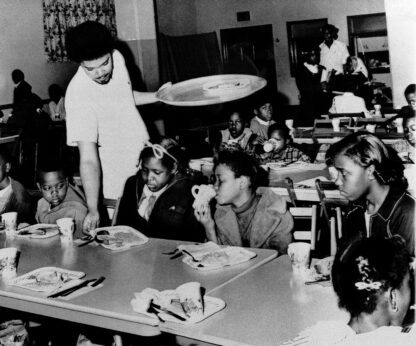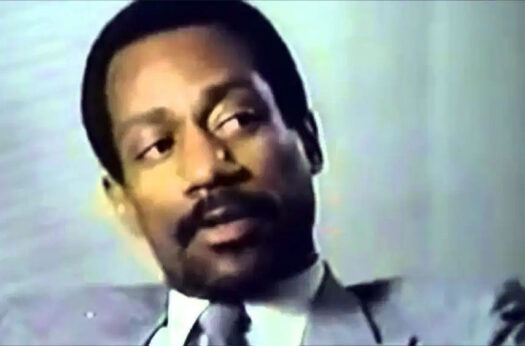
The young freedom fighters of the Black Panther Party, as brilliantly portrayed in the film Judas and the Black Messiah, were most certainly “uncompromising,” as described in Brian W. Major’s recent People’s World review. The recently released film, directed by Shaka King and starring Daniel Kaluuya, LaKeith Stanfiel, Dominique Fishback, and Martin Sheen, unfolds a story of FBI and Chicago Police Department conspiracy both bitter and telling, with profound lessons for today’s movements. It’s a must-see for anyone interested in the Black Liberation movement of the 1960s in general, and the Black Panther Party in particular, with stellar performances to boot.
Major’s treatment, however, while pointing to the historic importance of the Panthers and their rising young hero, Fred Hampton, lacks nuance and makes a number of misstatements of fact.

The Panthers, for example, were a leading element of the 1960s New Left. Their ideological influences, like many in the emerging movements of the time, were diverse. While influenced by Marx, the party also carried significant strands of thought from Frantz Fanon, Regis Debray, Herbert Marcuse, Che Guevara, Malcolm X, and others.
In describing their ideology, however, Major claims the BPP “developed an uncompromising revolutionary Marxist-Leninist political line,” a characterization that would have surprised Huey P. Newton. He and the BPP described their ideological posture not as Marxism-Leninism but rather as “inter-communalism.”
Following philosophers like Marcuse, New Left thinkers in the aftermath of McCarthyism sought to replace what they perceived as the “rigidity” of orthodox Marxism with a more “flexible” worldview. Part of that flexibility was to reassess the role of the working class, who were considered bought off or hopelessly assimilated. BPP theoreticians bought into this point of view, arguing that the lumpen-proletariat, that is, those declassed elements of society who had never worked, were instead the most revolutionary grouping.
This is an important point, given the Judas role played by film’s anti-hero, the lumpen William O’Neal, a hustler turned FBI snitch, responsible for betraying Fred Hampton and a host of others.
Marx described the lumpen element as “the ‘dangerous class,’ the social scum, that passively rotting mass thrown off by the lowest layers of old society.” He conceded that it “may, here and there, be swept into the movement by a proletarian revolution,” but, Marx argued, “its conditions of life…prepare it far more for the part of a bribed tool of reactionary intrigue.”
Bribed tool of reactionary intrigue indeed. What happened in Chicago was repeated in New Haven, New York, the Bay Area, and Los Angeles, as factional disputes were stoked by the FBI’s COINTELPRO offense among Panthers and between them and other organizations, like Ron Karenga’s US.

Major also strays off the mark with regard to his concept of how political change is achieved in the U.S. He writes “the BPP, as many readers may know, was one of the most notable political formations to come out of the United States—a movement of Black militants who realized that political change could not come out of changes in presidents or Congress. It would require a revolution.”
But the Panthers emerged out of a civil rights movement and a right-wing corresponding counter movement that had produced political change, the Second Reconstruction, and the Nixonian-initiated neoliberal assault on it. Were there some in the Panthers that posed movements of reform and revolution against each? Of course. But many in the Panthers, Hampton among them, saw things more clearly, as their famous Breakfast and Free Clinic programs gave eloquent testimony to.
Also missed in Major’s review, and in the film, was one of the most important initiatives to come out of the Chicago Panthers movement—the demand for community control of the police, an elected self-governing supervisory body that would be responsible for hiring, firing, budgeting…in other words, all aspects of policing.
But this was, after all, a made-in-Hollywood movie, not a documentary, where action trumps analysis and with that, perhaps, no foul.
Judas and the Black Messiah did capture the confrontation of a veritable police state at war with an oppressed people under siege; it correctly demonstrated the ruthlessness of FBI Director J. Edgar Hoover’s repeated effort to decapitate the rising revolutionary democratic movement in the African American community with the murders of Malcolm, Martin, and 21-year old Fred Hampton. And as suggested above, it did reveal, for all who will see, the implications of a complex interplay of ideas, platform, and, sadly, police penetration of the people’s movement.
The acting was top-notch, the writing believable (though one could have done with fewer MFs), and the action didn’t miss a beat.
Some have complained that the movie was more about the anti-hero O’Neil than the people’s hero, Hampton. That’s a fair point perhaps, but one that must be weighed against the film’s final act—the snitch’s suicide on Jan. 15, 1990. It was Martin Luther King, Jr. Day, as well as the date when PBS premiered its Eyes on the Prize II television series, which covered the history of the Panthers, among other topics.
A final note: The story of the people’s empowerment movement, in part begun by Fred Hampton and the BPP, didn’t end there. Hampton was murdered in 1969. A little more than a decade later, Harold Washington led a mass democratic uprising among some of the same forces Hampton sought to unite, but broader still, and was elected mayor of Chicago. And the struggle in the Windy City continues today—for justice and, still, community control of the police.









